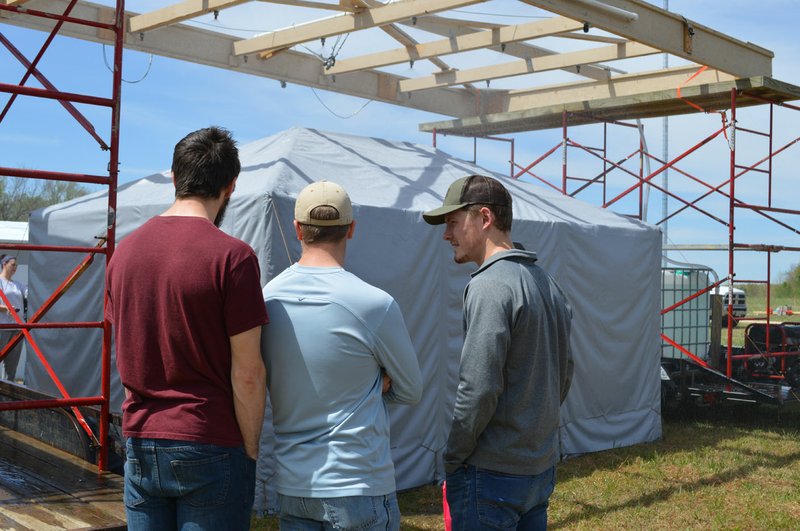John Brown University hosted the eighth annual disaster shelter competition this past Thursday, Friday and Saturday. The university's team took third place in overall competition.
This year's competition drew students from LeTourneau University in Longview, Texas; Dordt College in Sioux Center, Iowa; Abilene Christian University in Abilene, Texas; Pittsburg State University in Pittsburg, Kan.; and a South Korean exchange team that's currently attending Pittsburg State University.
The competition scenario was to build a shelter prototype and an emergency water supply and sewage collection system to prepare for similar weather conditions seen during the 2017 Hurricane Irma on the island of Barbuda, according to a press release from JBU. Prototypes were tested for a variety of circumstances, including earthquakes, wind, water and heat. Members of the Siloam Springs community also slept in the structures overnight to test livability.
LeTourneau University took home first place in overall competition and $1,500 cash prize. Dordt College took home second place in overall competition and $1,000 cash prize. Third place earned JBU students a $500 cash prize.
The teams also won cash prizes for fastest assembly, best wind resistance, lightest structure, lowest cost, best ventilation and best water and sewage system.
All teams that competed received a $1,000 stipend for their participation. This could be used for travel expenses, building costs, or other costs associated with the competition, said Mark Terrill, JBU associate professor of construction management and competition coordinator.
Structures for the competition could cost anywhere from $1,000 to $2,000 to construct, Terrill said.
Samaritan's Purse, a nondenominational evangelical Christian organization that works to provide aid to victims of war, poverty, natural disasters and more, sponsored this year's event.
General News on 04/17/2019
